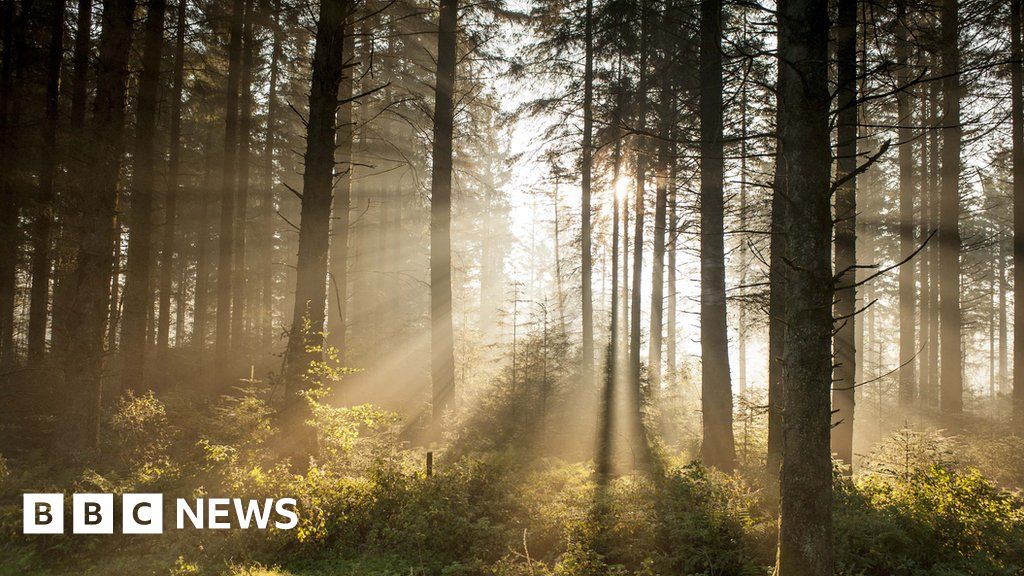Tiffany Francis-Baker: How forests shaped our literary heritage and inspired a nation


Tiffany Francis-Baker sits on a mossy tree trunk in the soft golden light of a woodland glade, discussing the role of forests in the British psyche.
“The woods are a scary place often in old fairytale literature,” says the writer-in-residence at the Forestry Commission. “You didn’t want to be caught by a wolf or something.”
She mentions the phrase, “out of the woods”, which harks back to our primeval fear of becoming lost in the forest.
The expression was first recorded centuries ago and is one of many wood-related sayings that pepper the English language.
“Knocking on wood” or “touching wood”, for instance, derive from the pagan belief that vengeful spirits inhabited wood and by touching it, you could appease them.
Forests have played an important role in our cultural imagination – as well as historically and industrially, says the writer and artist. “They’re just very intertwined with our British identity, which I love.”
Forests have set the stage for some of England’s literary heavyweights. For Shakespeare they were a place of both magic and menace; when in Macbeth Birnam Wood comes to Dunsinane, the protagonist knows he is doomed.
More recently, nature writers like Robert Macfarlane, have charted new journeys connecting humans with the landscape.
For Tiffany, forests are a place for reflection and inspiration. “The great thing about nature and forests is they’re constantly changing – so it’s just an endless infinite cycle of inspiration.”
Commissioned by the Forestry Commission in its centenary year to tell the story of the nation’s forests, she has set out to write a literary ballad with a twist, inspired by her love of the romantic poets and their connection with nature.
“I wanted to tell a story with the forest as the protagonist of these narratives, so that people can start to understand that we are all part of nature and that the forest and the wildlife and other species have exactly the same emotions and lives as we do, and the more we can relate to that, the better.”
Although the poem isn’t yet complete, you can get a taste of her work from her poem, The Vale, which starts: “There grows a host above the Sussex Downs, of dark yew trees, tainted needles for leaves, where turtle doves sleep in emerald crowns of oak, and ravens call out to the sea.”
More stories like this you might like to read:
We meet in Alice Holt Forest, once an ancient oak forest supplying timber for building naval ships, but now dominated by conifers.
A short walk into the woods, and the voices of children gambolling in the play area fade away, replaced by the distinctive sights, sounds and smells of the forest.
Here, it’s hard to believe that the nation’s woodlands were once in a sorry state, with tree cover declining since the Middle Ages. In September 1919 the Forestry Commission was founded to restore the nation’s woods and forests following World War One, and the passing of the Forestry Act.
UK woodland is estimated today at 3.17 million hectares, with England’s forest cover now double what it had been in 1919. Over the past century, the Forestry Commission has increased England’s tree cover to more than 10%. (Forestry is now a fully devolved matter, with separate agencies in Wales, Scotland and Northern Ireland.)
Harry Shepherd of Forestry England says celebrating 100 years is about looking forward as well as back.
“The woods are ever changing, society’s ever changing – what the woods mean, and what forests mean in society is ever changing. We’re facing numerous challenges today – climate change, pests and diseases, our forests are under threat – and they’re more important for human welfare and well being, inspiration and creativity than perhaps, you might say, ever before.”
Follow Helen on Twitter.


